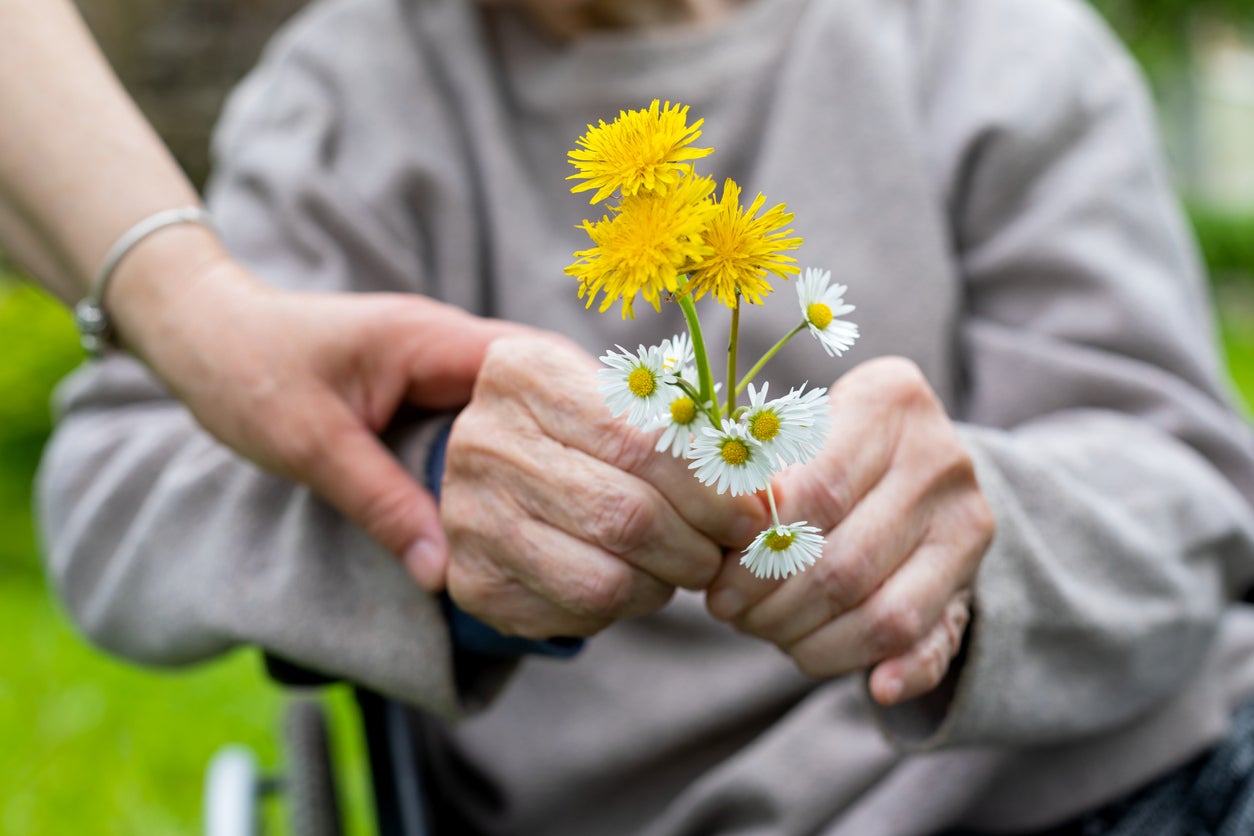I have been a care worker and know what the job involves – they deserve a real living wage
With very few exceptions, the people I met doing these jobs were hardworking, funny and uncomplaining, whose work should have more respect, writes Jo Brand


Many of us will never get any sense of the hugely demanding, arduous, sometimes repetitive, often boring, thankless nature of the work that care workers do. And in the setting of this chronically acute crisis, the job has become potentially life-threatening for many, too.
I think a lot of readers tend to glaze over when they see statistics on a page and therefore I am going to insert all my statistics into one sentence, so take a deep breath, get them all over and done with in one go and have a lie down afterwards.
Eighty per cent of people believe care workers (25 per cent of whom are over 55 years old and approximately 60-70 per cent of whom are women) should get the real living wage, but currently 75 per cent aren’t getting it (£9.50 in UK; £10.85 in London) and 100 per cent are probably really pissed off about it.
We should at this point distinguish care workers from “carers”, who are unpaid individuals, usually looking after a relative in their own home. Let’s not even get started on the recognition they deserve.
In the 1970s and 80s, I worked in a number of very different care settings, including a Victorian institution (in all senses of the word), housing adults with a learning disability, whose hair was literally trimmed using a bowl, whose male residents had their trouser pockets sewn up to prevent unsightly jiggling, and whose tea in the morning was served from a huge teapot containing loose tea, milk and sugar all chucked in together and spewed out in the form of a grey, speckled, lukewarm liquid with no discernible flavour, into plastic tumblers with teeth marks round the edges.
I then segued into something more 20th century, work-wise, employed in a smaller, more modern building, whose residents experienced somewhat more liberal treatment. We were pretty much a happy band of care workers and cared for.
With one of my best friends from school, I also worked in a children’s home where we, two 17-year-olds, were often left for days on end with 10 children, some of whom were a massive challenge, one regularly leaping from bed to bed at night and urinating on each and every occupant.
I did holiday jobs caring for severely disabled adults while their carers at home had a break and worked very long days, cleaning, changing and feeding people and getting some sense of the unenviable lives of the families. Some things have changed in the last 40 years but some things haven’t.
The same friend still works in the care sector and it seems to me the main problem is any sense of a consistent approach to pay and rights. Much of the care sector is privately run and (yawn, is she going to tell us that bosses are evil and they exploit the workers?) some bosses (insert your own statistic here depending on your politics), it has to be said, do put the amount of money they rake in before the safety, just deserts and health of their employees.
My friend has done care jobs which involved driving from home to home, but not being paid for the in-between bits and so, although working from 6.45am to 10pm many days, she was actually being paid for six hours only.
Much residential accommodation, because it does not fall under the umbrella of the NHS in some areas, has failed its workers by not having access early enough to decent PPE and as we know, ended up tragically putting its residents at risk with a little help from substandard PPE procured by mates of the government who really didn’t seem to have a clue what they were after.
Why am I telling you this? Because, with very few exceptions, the people I met doing these jobs were hardworking, funny and uncomplaining, whose work should have more respect. They are a mostly silent majority, filling in the gaps in society, holding together a leaky, creaky, incoherent system, very often caring for their own families during the day (at the moment that means teaching them, too) and often working through the night to keep their heads above water.
They are also, as I have said, older and mainly women and I think that predominantly female jobs, unconsciously, tend not to carry the weight of obligation for fair pay that predominantly male jobs do. This is a throwback to when we were the property of our husbands, worth about the same as a goat, and didn’t keep talking, while being very annoying. Sadly for Yoshiro Mori, we’re allowed to do that now.
There is cross-party support for providing care workers with a real living wage, which is encouraging, as normally cross-party support tends to focus on anodyne, uncontroversial issues.
Care workers have the support of the unions but as a group, they do not possess a huge amount of political clout as they move in and out of work depending on their circumstances. To business leaders they are part of the “flexible labour market”, and who wants to be in that in this day and age, as the big rug of work stability is pulled from under ever more people’s feet, aided by the banana skin of zero-hours contracts.
In short: I cannot really think of any reason not to support the real living wage being made compulsory for care workers.





Join our commenting forum
Join thought-provoking conversations, follow other Independent readers and see their replies
Comments